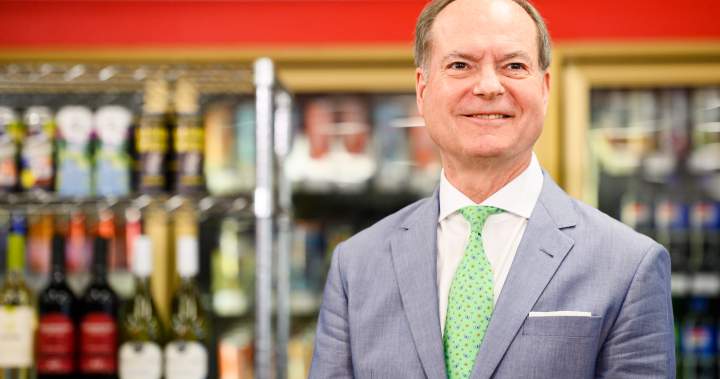Ontario’s finance minister is hitting back at grocery stores that have complained they are not set up to collect empty alcohol containers, telling them to get on board or give up the right to sell booze.

Concern from grocery stores has been growing for months as the requirement to accept and recycle empty cans and bottles approaches.
The change, which was announced when the Ford government liberalized alcohol sales last year, will mean grocery stores must soon offer the same deposit return options the Beer Store currently handles.
Groups representing the grocery industry have complained that they will not be able to handle the switch, predicting some may relinquish their alcohol licences rather than accept empties.
Asked about the grumblings at an unrelated event on Friday, Finance Minister Peter Bethlenfalvy said grocery stores “are doing extremely well” as a result of being able to sell alcohol.
Story continues below advertisement
He said the terms — which involved a phased-in requirement to accept empties — were clearly laid out when grocery stores applied for alcohol licences in the first place.

Get daily National news
Get the day’s top news, political, economic, and current affairs headlines, delivered to your inbox once a day.
“When we launched the modernization, they all signed up. They signed up, benefitting from increased choice in their stores, and we fully expect them, through their signed agreement, that said they would, (to) put recycling in place,” Bethlenfalvy replied to a question.
“My message to the grocers is: comply or give the licence back, your choice.”
More on Politics
More videos
The concerns grocers have raised with collecting empty bottles and cans include the risk to food safety, finding space for the containers and the staffing challenges that come with having to clean and organize empties for pick up.
The requirement for grocery stores to collect empties stems from an early 2024 decision by the provincial government to end the Beer Store’s monopoly in Ontario and allow convenience, corner and big box stores to sell some alcoholic drinks.
At the time, Ontario set aside $225 million for the Beer Store to try and stem the flow of job losses, limiting the number of stores it could close until Jan. 1, 2026.
Trending Now

Renowned ICU doctor Darren Markland dies in Alberta mountain biking accident

Trump sets 100% tariffs on pharmaceuticals, 25% on heavy trucks for Oct. 1
That meant a network of returns and recycling spaces was guaranteed to stay open until next year, at which point the plan required grocery stores to, at least partially, take over that responsibility.
Story continues below advertisement
The Beer Store has announced a slew of closures since then, shuttering almost every store it is allowed to under its agreement.
It has, however, said it will keep the 300 stores it promised to open until at least Jan. 1. After that, officials with the company are refusing to be drawn on any promises.
It remains to be seen if grocers will follow through on the threat to stop selling alcohol and, if so, how many will hand back their licences.
Bethlenfalvy said he thought they would meet the deadline and accommodate the change.
“I think it’s about time the grocers stepped up,” he said. “I’m confident they’ll see the light and they’ll step up.”
— With files from Global News’ Megan King
© 2025 Global News, a division of Corus Entertainment Inc.

